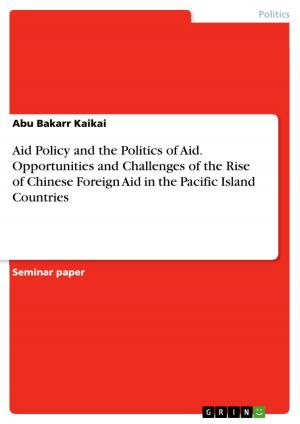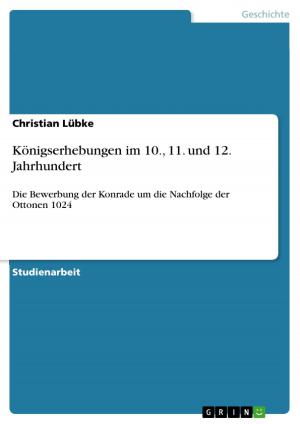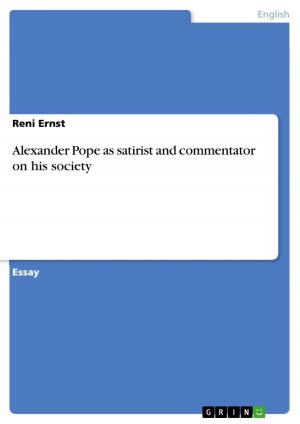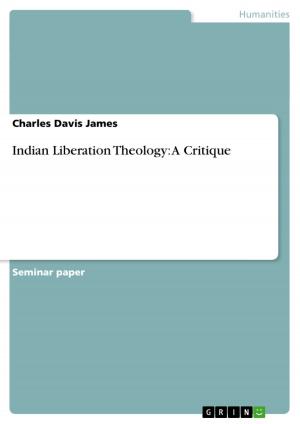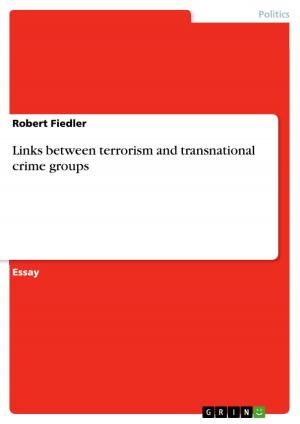Oktoberfest München. The world's largest public event
The world's largest public event
Business & Finance| Author: | Nico Schulenkorf | ISBN: | 9783638028691 |
| Publisher: | GRIN Publishing | Publication: | March 27, 2008 |
| Imprint: | GRIN Publishing | Language: | English |
| Author: | Nico Schulenkorf |
| ISBN: | 9783638028691 |
| Publisher: | GRIN Publishing |
| Publication: | March 27, 2008 |
| Imprint: | GRIN Publishing |
| Language: | English |
Seminar paper from the year 2005 in the subject Business economics - General, grade: 1,0, University of Technology, Sydney (School of Leisure, Sport and Tourism), course: Event Management, 20 entries in the bibliography, language: English, abstract: This case study examines the current management practices of the Oktoberfest and focuses on the co-operation between its organisational body, the Munich Tourist Office, and the most influential stakeholders. By analysing the internal and external resources and competences of all participating bodies, the puzzle that is the event environment can be solved and transferred into a finished event picture. Literature reviews, secondary data from Oktoberfest surveys and in-depth expert interviews support the arguments presented in the report. One of the most outstanding characteristics of the Oktoberfest is that despite no marketing or sponsorship activities, this mega event has always been successful and economically stable. This paper discusses the overall financial benefits that are achieved through the close link of the festival with the tourism sector, which results in increased income for the host community. In order to evaluate the success of the beer festival in more detail, special attention is given to the various economical, political, social, physical and environmental aspects which are impacted by the Oktoberfest. Shared experiences between national and international visitors and the building of community pride are examples of social impacts; improved transportation and environmental awareness impact the physical side; international prestige and profile impact at the political level whereas increased tourist visits and job creation impact at an economical level.
Seminar paper from the year 2005 in the subject Business economics - General, grade: 1,0, University of Technology, Sydney (School of Leisure, Sport and Tourism), course: Event Management, 20 entries in the bibliography, language: English, abstract: This case study examines the current management practices of the Oktoberfest and focuses on the co-operation between its organisational body, the Munich Tourist Office, and the most influential stakeholders. By analysing the internal and external resources and competences of all participating bodies, the puzzle that is the event environment can be solved and transferred into a finished event picture. Literature reviews, secondary data from Oktoberfest surveys and in-depth expert interviews support the arguments presented in the report. One of the most outstanding characteristics of the Oktoberfest is that despite no marketing or sponsorship activities, this mega event has always been successful and economically stable. This paper discusses the overall financial benefits that are achieved through the close link of the festival with the tourism sector, which results in increased income for the host community. In order to evaluate the success of the beer festival in more detail, special attention is given to the various economical, political, social, physical and environmental aspects which are impacted by the Oktoberfest. Shared experiences between national and international visitors and the building of community pride are examples of social impacts; improved transportation and environmental awareness impact the physical side; international prestige and profile impact at the political level whereas increased tourist visits and job creation impact at an economical level.

